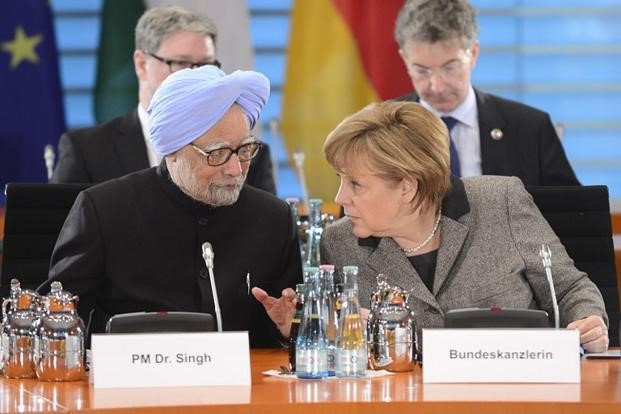 After relatively slow and quiet election campaigns, the German federal elections brought surprising results. First, the FDP, the liberal party, lost about 10 per cent of its vote share and will not be represented in the next Bundestag (federal parliament). Secondly, the AfD (Alternative für Deutschland/Alternative for Germany), a recently...
After relatively slow and quiet election campaigns, the German federal elections brought surprising results. First, the FDP, the liberal party, lost about 10 per cent of its vote share and will not be represented in the next Bundestag (federal parliament). Secondly, the AfD (Alternative für Deutschland/Alternative for Germany), a recently...
founded anti-Euro party, nearly entered the Bundestag. Third, the CDU (conservative party) was on the brink of being able to form a single party government. Lastly, the result of the Left is significant in so far as it further cements the rift within the social democratic camp.
These results bear two possible scenarios for government formation: A grand coalition, which is the most likely option, or a CDU-Green coalition, although this option is not very likely. There is the also the possibility for the CDU to form a single-party minority government, but that scenario is highly unlikely.
What do these election results mean for Indo-German relations?
First, regardless of which coalition will form the government, developmental cooperation is very likely to change. The Ministry for Economic Cooperation and Development (BMZ) was headed by the liberal FDP which is no longer represented in the Bundestag. The Minister in charge of the BMZ, Dirk Niebel, was widely criticised for large scale clientelism, reduction of development aid in favour of market developments and private business investments and a controversial re-structuring of the ministry and its connected organisations.
The SPD or Green party is likely to take charge of the BMZ and change the focus of developmental cooperation; while a SPD led BMZ would probably return, at least in part, to the policies of the BMZ under Heidemarie Wieczorek-Zeul (SPD) who led the ministry between 1998 and 2009. Those policies may include a stronger focus on social issues in economic cooperation, for example development of worker protection, social impact of economic investments and so on. In case of a CDU-Green coalition, a Green party led BMZ may put the focus on ecological cooperation. In that case, projects supporting environmental protection schemes and technical cooperation on alternative energy sources are to be expected centres of policy-making.
In terms of economic cooperation and direct investment a further decline is to be expected. It is very likely that the Ministry for Economics (BMWi) will be led by either the CDU (in a CDU-Green coalition) or the SPD (in a grand coalition), with Euro-centric economic policies as the focus of both parties, especially since more than 60 per cent of exports are going to European countries and more than 40 per cent into Euro countries.
With the ongoing financial crisis in Europe and the danger of a breakdown of the French economy, the main focus of each possible government coalition will consequently be the stabilisation of the Euro and the European economic zone. Promotion of direct investments into India and strong economic cooperation will be, at least on the government agenda, secondary. India will, however, still play a role in any governments economic considerations since Germany is India’s biggest trade partner in Europe.
Security-related cooperation will probably remain the same. India is a key ally in South Asia and the Indian Ocean Region, especially in the fight against piracy and against international terrorism. Whichever coalition forms the government, it will certainly remain in line with EU policies and the Joint Action Plan of 2010. Concerning military cooperation, especially arms trade, India plays no important role on the German agenda, except for regular consultations on military policies.
Regardless of the outcome of the necessary coalition negotiations, and regardless of any changes in the leadership of the respective ministries, a bigger shift in Indo-German relations is not to be expected. On a working level existing cooperation will go on, in most cases with the same personnel.
Technological and scientific cooperation between Germany and India will continue to have huge potential, even though German investments in India and German sales in India are on the decline. Any German government will remain faithful to the partnership and innovation agreements already in place, and will encourage further cooperation between private businesses and research institutes.
But all these possibilities remain highly speculative and contain a degree of uncertainty, due to the Lok Sabha elections in less than 9 months. If there is any change of policy towards India by a German government, that government may have to deal with a different Indian government by the time these changes can be affected.
The only field where changes in Indo-German relations can be expected is development cooperation.
In the fields of economic, security and scientific cooperation, changes are unlikely because the current policies in place, which favour investment in India and cooperation with Indian businesses, are supported by all three parties which could join a coalition government. While economic cooperation and direct investments could be somewhat slower than a few years ago due to the Euro-crisis, either a grand coalition or a CDU-Green coalition will remain committed to the advancement of Indo-German relations.
Courtesy : Institute of Peace and Conflict Studies (http://www.ipcs.org)